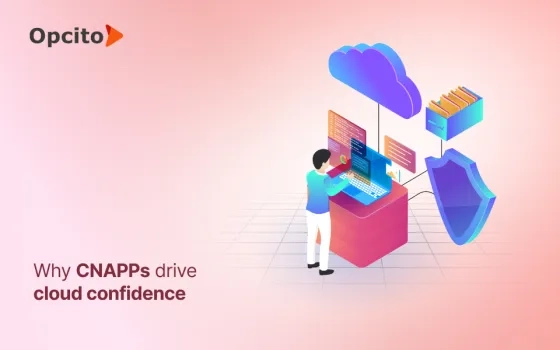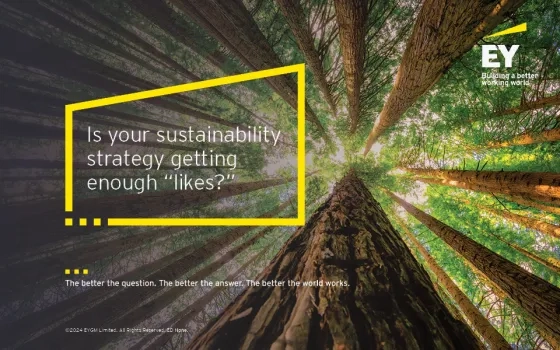Every now and then, a new tech word gets introduced in the market and creates a buzz among tech geeks. In 2014, the term was Virtual Reality (VR). If you remember, during early 2014, all social media platforms were bombarded with videos of Mark Zuckerberg talking about how VR headsets and virtual reality (in general) are going to transform the world.
Well, it’s been eight years since these statements and it’s safe to say that VR technology has established its place in several industries. Of course, VR still hasn’t gone as mainstream as Zuckerberg projected it to be, but the technology has managed to transform a few industries for the good.
In the past few months, Zuckerberg has showcased a similar passion for another technology. If you have been following the tech world closely, you may know that the social media entrepreneur has changed his brand’s name from Facebook to “Meta” - and no it’s not a coincidence. Zuckerberg is planning to be the first one to introduce Metaverse to the world and changing its company’s name is the first step towards this goal.
However, when will Metaverse come to reality? And, more importantly, will it have any impact on the IT services industry? In this guide, we are going to explore the potential impact of Metaverse on IT service providers and understand why they should stay prepared for this upcoming technology.
What is Metaverse?

The term ‘Metaverse’ was first coined in 1992 in a cyberpunk novel - ‘Snow Crash’ - by Neal Stephenson . According to Stephenson, a Metaverse could be explained as an alternate reality that people could use to interact with each other in a virtual space. While Stephenson’s idea about Metaverse was limited to virtual reality (VR) headsets only, the modern-day Metaverse, as explained by Mark Zuckerberg, can also include other technologies for a fully immersive experience. Mark says,
“We’ve gone from desktop to web to mobile; from text to photos to video. But this isn’t the end of the line. The next platform will be even more immersive — an embodied internet where you’re in the experience, not just looking at it. We call this the metaverse, and it will touch every product we build.”
In simple terms, Metaverse could be explained as a virtual space over the Internet (that may or may not replicate the existing world) where people could create their own Avatars and interact with each other through technologies like virtual reality and augmented reality.
Is Metaverse Already Here?
The answer is Yes! We have already encountered bits and pieces of Metaverse in real life. Roblox, an online gaming platform, is the perfect example of how a Metaverse could look like in the near future. For readers who don’t know,Roblox is an online gaming platform that allows players to program their own games and invite others to be a part of the experience.
In short, they can develop virtual environments where other players could create their own Avatars, participate in battles, and interact with each other in real-time. Even though Roblox doesn’t rely on virtual or augmented reality, it’s still a perfect definition of metaverse as it allows users to interact in a virtual space by creating dedicated avatars.
Another example of Metaverse could be celebrities like Justin Bieber and Ariana Grande hosting virtual concerts by partnering with tech giants like Wave and Fortnite. Back in November 2021, Justin Bieber partnered with the virtual entertainment company - Wave - to host a live metaverse powered concert that his fans could be a part of right from the comfort of their home.
Bieber wore a motion-capture suit that allowed him to control the movements of his digital avatar. During the concert fans also had the liberty to interact with the singer, show up in the concert through a webcam, and even create their own avatars.
So, is the metaverse already a reality? Yes, whether we might have encountered it or not, Metaverse is already here. Though it’s not at the grand scale that Zuckerberg has envisioned it to be, it’s safe to say that we have already stepped into the initial stages of Metaverse and it’s only going to expand from here onwards.
Who Will Create the Metaverse First?
So, who’s going to be the first one to introduce a full-scale metaverse to the world? Well, we don’t know! Like Facebook, many Silicon Valley tech giants are investing millions of dollars in the development of Metaverse. Of course, with Facebook changing its name to ‘Meta’ may look like that Zuckerberg's team is dead-serious about being the first company to develop the Metaverse.

A few other companies that are after the same goal include Microsoft, Nvidia, Roblox, Unity, etc. However, nobody knows who will reach the finish line first. To believe Zuckerberg, it’ll still take anywhere between 5-10 years for Metaverse to come into existence. And, with a global pandemic dominating the entire world, it’s no surprise if it takes more than a decade to witness the first glimpses of Metaverse.
What Does Metaverse Have to Offer to IT Service Providers?
Now, if Metaverse is still a distant dream, why should the IT service providers be concerned about it, especially when they are relishing the benefits by offering development services. The truth is Metaverse could unlock an array of opportunities for the software development community.
For instance, all these tech giants chasing the ‘Metaverse’ dream require a pool of skilled developers who could help them build the required digital architecture. It means the demand for highly skilled developers will increase rapidly.
Another way Metaverse can likely transform the IT industry is through the growing demand for digital solutions that would allow users to interact in the Metaverse. Just like smartphones, the Metaverse would require certain digital solutions (like mobile apps) to allow users to interact with the digital environment and with each other. Of course, industry leaders would invest in these applications, but they would need a dedicated development partner to handle the entire development phase.
Metaverse can also impact the current work culture of IT firms in a big way. In the past few years, we have all understood that hybrid work is the future. However, the current infrastructure and work environment make it slightly challenging to embrace the remote setup. With Metaverse, however, it’s expected that remote working will become fun and more immersive. Microsoft is already planning to combine MESH - its official AR/VR platform - with Teams to allow employees to conduct meetings in a virtual environment and make them more engaging.
Meta, formerly known as Facebook, is also developing Horizon Workrooms - VR-based meeting rooms where employees could be a part of a virtual meeting by wearing the Oculus VR headsets. With these virtual meeting rooms, employees won’t find videoconferencing boring and they’ll be able to deliver 100% productivity, even in a remote work setup.
Apart from changing the work culture, Metaverse can also give IT companies the opportunity to add new digital services to their list. A few of these services include:
1. Metaverse Applications
As we mentioned earlier, users would require a dedicated portal to interact with the Metaverse. Like mobile apps allow users to access different hardware components of a smartphone, Metaverse applications will also give users the ability to interact with the Metaverse.
Now, if an IT service provider wants to step into the world of Metaverse applications, it’ll be crucial to first gain expertise in AR/VR development. Why? Because both these technologies are necessary to deliver a completely immersive user experience. With Augmented Reality and Virtual Reality, developers can devise interactive applications for the metaverse and allow users to explore the virtual space more effectively.
2. Metaverse Games
It’s no arguing the fact that Metaverse has already seeped into the gaming world. Gaming platforms like Roblox and games like Fortnite are the perfect examples of a Metaverse. However, experts believe that Metaverse will further expand the gaming industry beyond imagination.
By incorporating different technologies like Virtual Reality, Augmented Reality, and NFTs, developers can launch games that offer an interactive gaming experience to worldwide players. With NFTs coming into the picture, players would also be able to trade in a virtual environment and enjoy addictive gameplay.
3. NFT Marketplaces

From celebrities to tech geeks, everyone is talking about NFTs, especially after Beeple, a digital artist sold one of his digital artwork (NFT-based painting) for $69 million. With the increasing popularity of cryptocurrencies, NFT marketplaces will become massive in the coming few years. As of today, Decentraland could be considered as one of the examples of an NFT marketplace, but the future variations will be comparatively more immersive with better features.
Like digital paintings, sellers will have the power to tokenize everything and sell it in a completely secure environment. To do this, however, they would require a dedicated marketplace that supports NFT transactions through Blockchain. It means the demand for IT service providers specializing in the NFT marketplace and Blockchain development will increase rapidly.
Conclusion
Metaverse will be here - sooner than you expect. While each organization has a different vision for Metaverse, it’s no arguing the fact that it’ll soon be a reality and might become a crucial driving force for the tech world. The applications of Metaverse are endless and every industry can relish its benefits. As far as the IT industry is concerned, Metaverse is going to open a multitude of opportunities for every IT service provider and will allow them to build feature-packed solutions to interact with the Metaverse.






























